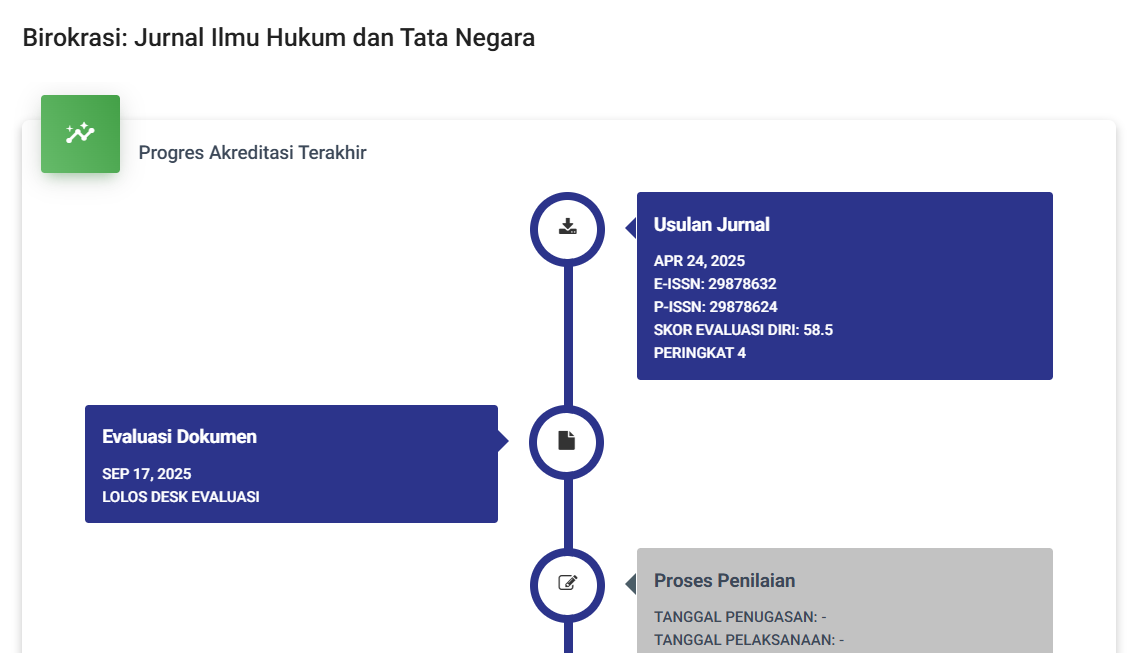Faktor-Faktor Penghambat Penyidikan terhadap Tindak Pidana Perdagangan Orang (Human Trafficking) di Polres Timor Tengah Selatan
DOI:
https://doi.org/10.55606/birokrasi.v2i4.1558Keywords:
Trafficking in Persons (TIP), Factors Hindering Trafficking in Persons Investigations, Efforts to Overcome Obstacles to Trafficking InvestigationsAbstract
This study aims to find out and analyze the factors that hinder the investigation of human trafficking in South Central Timor. This research is an empirical legal research supported by a qualitative approach using primary data in the form of interviews and secondary data in the form of information, literature studies, literature books, documents, laws and regulations, and other written sources related to research collected using interview techniques, literature studies and documentation studies that are analyzed in a qualitative descriptive manner. The results of the study show that (1) Police Actions in the Eradication of Trafficking in Persons by the South Central Timor Resort Police include, Pre-emptive Actions and Preventive Measures and Repressive Actions. (2) Efforts Made to Overcome Obstacles in the Investigation Process for the Crime of Trafficking in Persons, namely the first effort, carried out persuasively, the second effort, the police make efforts by convincing using words and the third effort, the police give advice to the victim's parents to keep their children, especially their daughters, more strictly, (3) The role of the Manpower and Transmigration Office of South Central Timor Regency in Handling the Crime of Trafficking in Persons and the Role of Local Governments in Supporting the Overcoming of Persons is to increase public understanding of the procedures and mechanisms for working out, both between regions and between countries.
References
Andi Hamzah. (2000). Hukum acara pidana Indonesia. Jakarta: Sinar Grafika.
Andy Yentriani. (2012). Politik perdagangan manusia. Surabaya: Bina Media.
Chairul Badriah. (2005). Aturan-aturan hukum trafficking (perempuan dan anak). Bandung: Erlangga.
Farhan. (2010). Aspek hukum perdagangan orang di Indonesia. Jakarta: Sinar Grafika.
Kanter, & Sianturi, E. Y. (2001). Asas-asas hukum pidana di Indonesia dan penerapannya. Jakarta: Storia Grafika.
Keputusan Gubernur Nomor 294/KEP/HK/2014 tentang Gugus Tugas Anti Perdagangan Orang dan Pencegahan serta Penanganan Calon Tenaga Kerja Indonesia dan Tenaga Kerja Indonesia yang bermasalah atau non prosedural.
Kitab Undang-Undang Hukum Acara Pidana (KUHAP) Pasal 1 nomor 2.
Kitab Undang-Undang Hukum Acara Pidana Pasal 1 butir ke 16, 17 dan 18.
Kitab Undang-Undang Hukum Pidana (KUHP) Pasal 297, Pasal 55 dan Pasal 56.
Masyur Effendi. (1994). Dimensi dan dinamika hak asasi manusia dalam hukum nasional dan internasional. Jakarta: Ghalia Indonesia.
Muhaimin. (2002). Pengertian penelitian hukum empiris, metode penelitian hukum (1st ed.). Mataram NTB: Penerbit Mataram University Press.
Sahuri Lasmadi. (2010). Tumpang tindih kewenangan penyidikan pada tindak pidana korupsi pada perspektif sistem peradilan pidana. Jurnal Ilmu Hukum, 2(3), 10. Universitas Jendral Soedirman Fakultas Hukum.
Sugiyono. (2011). Metode penelitian kuantitatif, kualitatif dan R&D. Bandung: Alfabeta.
Sugiyono. (2015). Metode penelitian kombinasi. Bandung: Alfabeta.
Sugiyono. (2016). Metode penelitian kuantitatif, kualitatif dan kombinasi. Bandung: Alfabeta.
Sugiyono. (2019). Metode penelitian kuantitatif, kualitatif dan R&D. Bandung: Alfabeta.
Tim ICCE UIN. (2003). Demokrasi hak asasi manusia dan masyarakat madani. Jakarta: Prenada Media.
Undang-Undang Nomor 2 Tahun 2002 tentang Kepolisian Negara Republik Indonesia.
Undang-Undang Nomor 23 Tahun 2002 Pasal 83 yang telah diubah dengan Undang-Undang Nomor 17 Tahun 2016 tentang Perlindungan Anak.
Undang-Undang Nomor 39 Tahun 1999 tentang Hak Asasi Manusia.
Undang-Undang Republik Indonesia Nomor 21 Tahun 2007 tentang Pemberantasan Tindak Pidana Perdagangan Orang.








